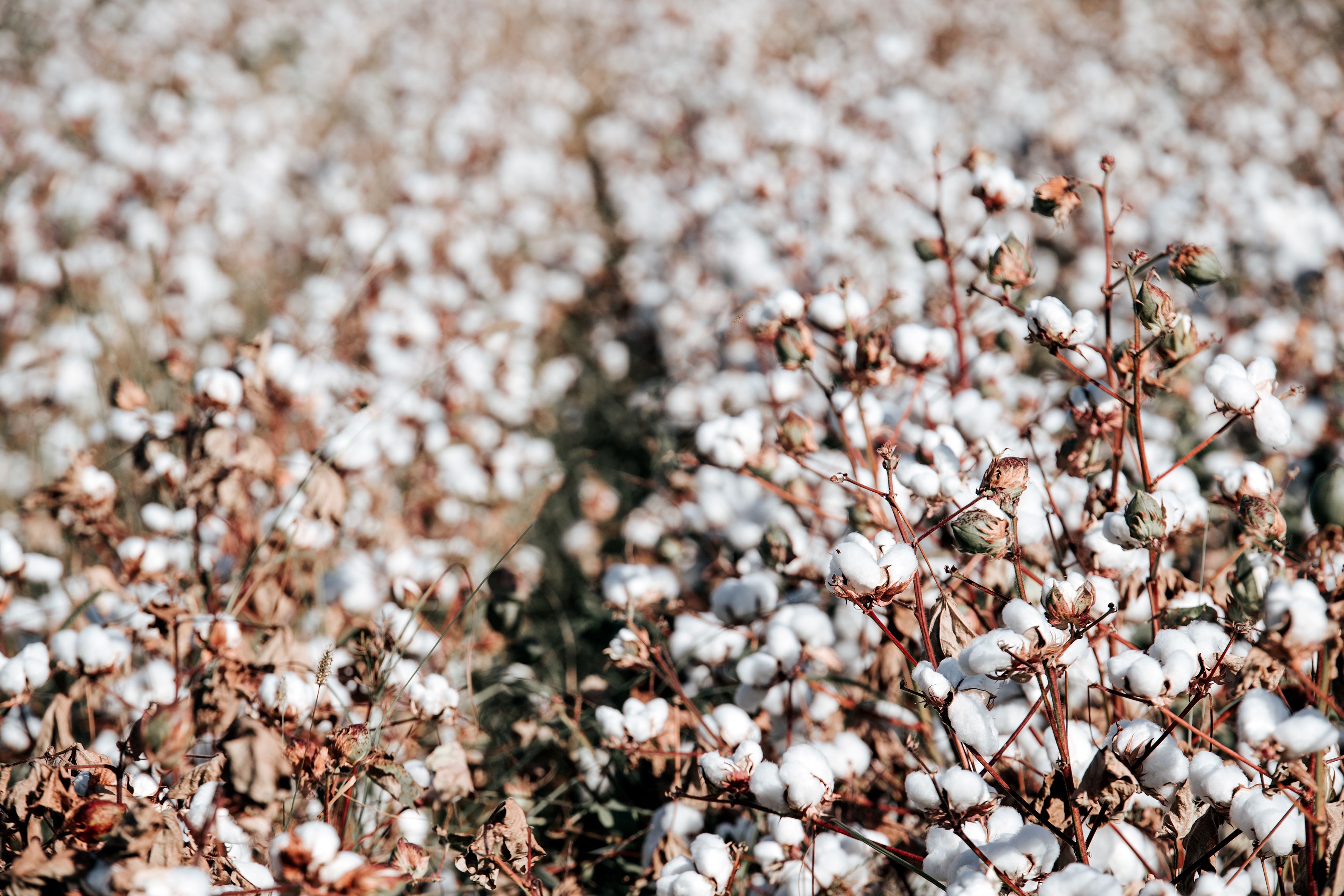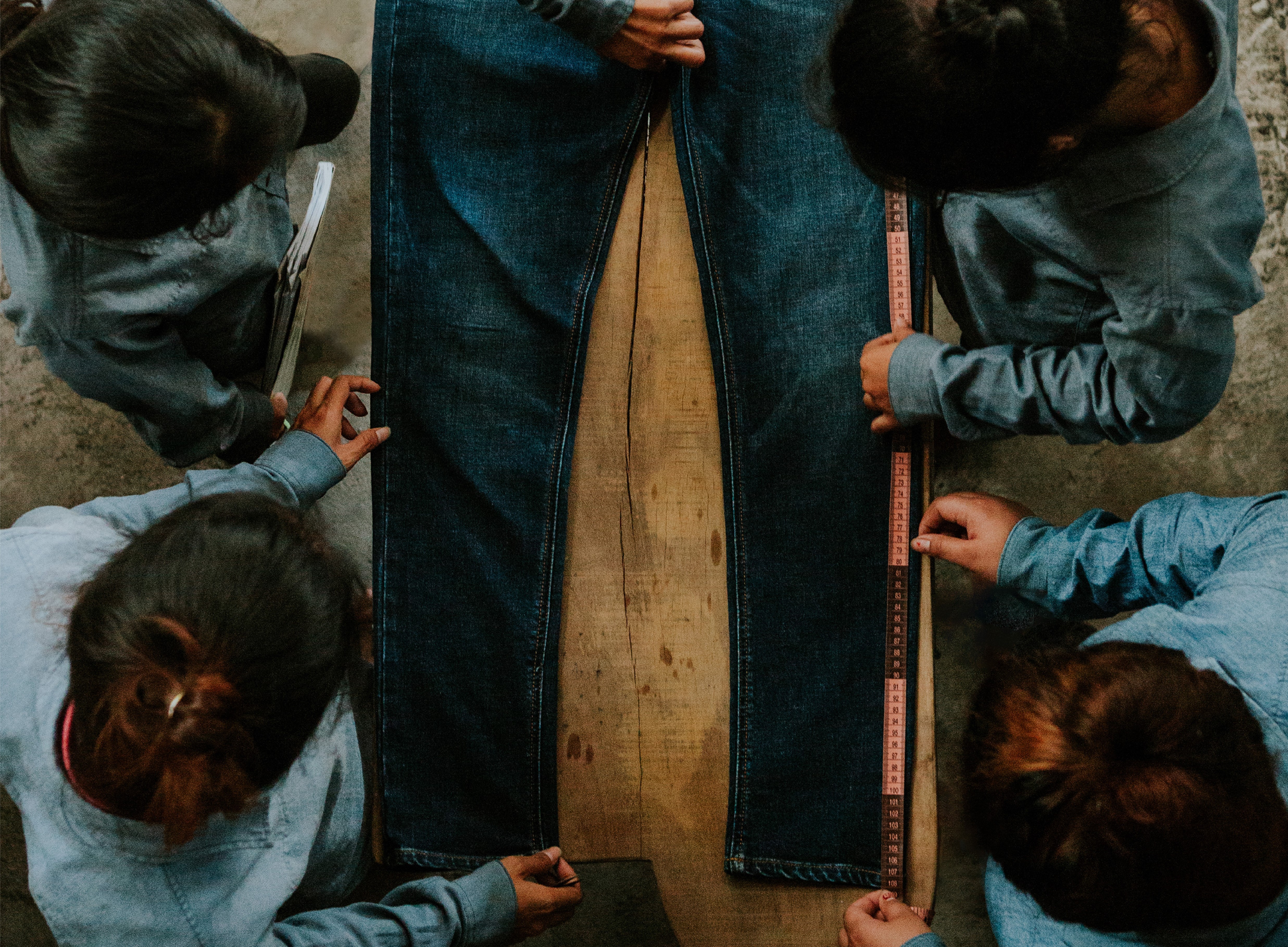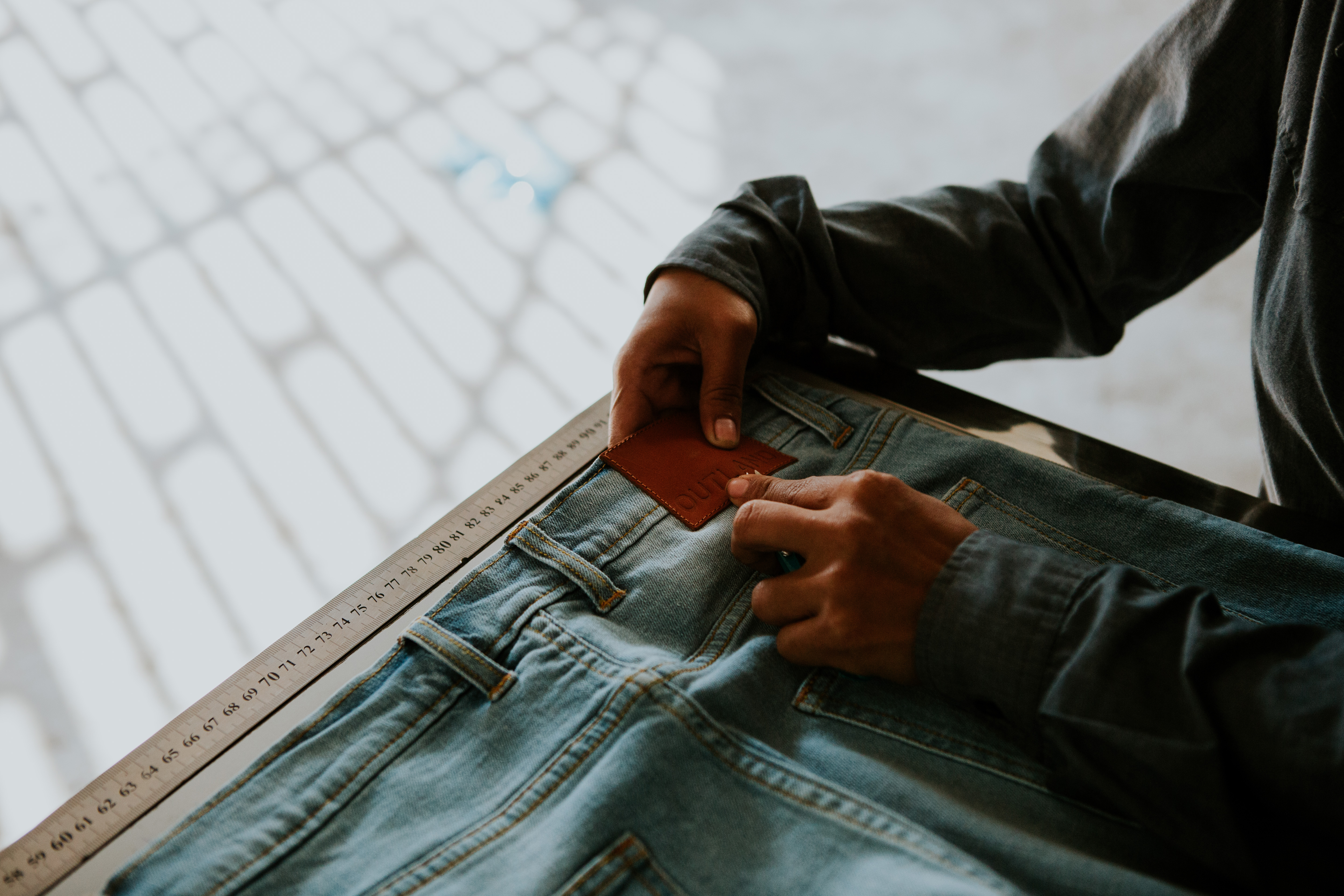Sustainable fashion brand and Certified B Corporation Outland Denim designs its products to minimise impact on the environment and to mitigate the risk of exploitation. Through a carefully managed supply chain, people from backgrounds of vulnerability and exploitation are employed to create ‘Denim for Freedom’. We sat down with founder and CEO James Bartle to discuss Outland Denim’s recognition in this year’s Best for the World™ list for the Community impact area.
Watch the conversation here, or read the full interview below.
James: I love knowing that the creation of these beautiful products directly impacts people’s lives, not just their own lives, but their families and communities as well. We’re pretty stoked to be nominated for Best for the World™ in Community. It’s a massive honour; to get this nomination is huge.
Outland Denim exists to create opportunities for vulnerable women around the world that have been either exploited or vulnerable to being exploited in a range of different ways. Human trafficking is one of the things that really drives us as a business to be able to eradicate this problem.
One of the things that I get to do in my job every day is work within a space that I’m really passionate about: denim and the creation of beautiful products. I consider myself a really lucky person to be able to work in a space like this.
B Lab: It’s really easy for supply chains to get lost – especially when you’re making products that are more than just boutique-level runs. What are some of the steps that Outland Denim has taken to make sure that you have transparency over every step of that supply chain?
James: It’s a really difficult process to go right back to the very start of where the fibers are growing in your supply chain. In fact, it’s taken us a really long time to get there, and to get there with enough insight to be able to identify that there could be issues.
That’s really our goal; to identify where issues are so that we can work towards solving them.
It’s a mindset change that I think needs to happen across our industry, and it’s a mindset change that we ourselves had to have working to develop this business model. It’s about going back into that supply chain, trying to identify what issues there are. Then, when those issues have been identified, looking for solutions. We want opportunities to be created for those people where the conditions are really fair. We then take that philosophy all the way through our supply chain. It gets easier, the further along the supply chain you get.

B Lab: We love your approach of taking responsibility for your supply chain all the way back to the cottonseed. What are some of the things you’re doing in the manufacturing part of your supply chain?
James: We own our manufacturing facility. It gives us this ability to work with people that a lot of the time have come from horrific pasts. Our business isn’t working with people who have skills necessarily. We’re working with people who may need to develop those skills. We aim to teach them skills, to educate them around different aspects like work ethic. It’s an educational process in itself.
We see that as one of the elements that has given Outland Denim the ability to give opportunities to people that haven’t had the same privileges as us. We’re now seeing the results of those people becoming the changemakers in their own families and communities. Setting those kinds of foundations is really important.
We then have to think about things like how these people might be earning more money than ever before, which can often put people in a worse position. So it’s really important that we teach them how to manage finances, to educate around saving for the future, planning for the future. This model genuinely completely changes somebody’s life.
B Lab: Beyond just the direct benefit to your staff, does this model benefit you in a commercial way? Has there been any carry-on effects for your staff here in Australia? What’s it been like for the business?
James: It’s only benefits. It’s a harder road; our industry was created on something that was never going to be sustainable. The benefits are so rich, and it’s not just for the obvious people. Everybody who works here knows that every time they come to work, they are changing somebody else’s life. When we have an opportunity to have a greater purpose in our work, it’s fulfilling. It creates a culture of people that are genuinely looking outward, and looking for an opportunity to serve and help somebody else – not everybody gets that.
Commercially, there are huge benefits. Do you want to buy a product that aligns with your personal values? It’s our job to educate and communicate that effectively to people, so when they slow down, they can actually realise that this really is a product I can be proud of. When our customers and our community buy into our brand and into the product, they start to wear the product regardless of the way it’s been made, regardless of the impact that it makes on a social and environmental level. Members of our community become ambassadors for us.
The cherry on top is that when you bought these jeans, you activated a cycle of freedom for somebody you’ve never met. You also invested in innovation around solving some of the greatest environmental challenges we face. You became the change-maker as somebody who purchased this product.

B Lab: To create sustainable change, you can’t always rely on donations. While the not-for-profit model is great in so many ways, you have to figure out how to keep that going during tough times like the pandemic. This last year has been challenging for all of us, but how has COVID affected Outland Denim?
James: It was a great test to the character of our brand. You start thinking about all the people that you started this business for and the reason that you exist as a brand. But the financial strain and pressure that it put on businesses was astronomical, and especially for a smaller brand like us.
Now the obvious thing is if you’re only measuring the economic impact of each decision you make, then you would send staff home. We could have done those things, but it completely goes against everything we stand for.
Every member of our team realised that we are committed, we are committed to the reason that we claim we started for. This isn’t about money. This is actually about the people.
Prior to COVID, our strategy was that we were a wholesale business. No longer were we able to sell through these retailers; the only way we were going to sell our product was to sell it online. So we hired a head of digital. He came on board with a big job to do, but we’re really excited to say over that period of time, we were able to grow that part of our business by 190%, and we’re still able to align with people’s values. As a result, we’re winning.
B Lab: There’s a type of capital that can come with that genuine commitment. It’s really important that businesses are also seeking out boards and investors that are aligned.
James: We’ve attracted nearly 1000 investors so far to joining Outland Denim, and it’s because we’ve got the right investors that are involved in our organization. We have the support of many to be able to continue and remain true to our reason for being.

B Lab: What’s the main thing you really want to see become the norm for all of the fashion industry?
James: I can’t narrow it down to one thing. I’m going to merge people and the planet together. If we really want to impact environmental degradation, then one of the fastest ways we’re going to do it is by challenging human slavery, modern slavery. I believe that change starts with people. Unless you motivate people to change, nothing will change or it won’t be a lasting change.
I want to see the fashion industry, grow a heart and grow a conscience. I would like to see that we can be a small part in influencing our industry to become the change-makers, to become the industry that everybody looks at and says the fashion industry changed the future for all industries. I genuinely, with every part of me, believe that is an entirely possible dream.
Congratulations to Outland Denim for making the Best for the World 2021 list for Community.
Interviews have been edited for clarity & length.

